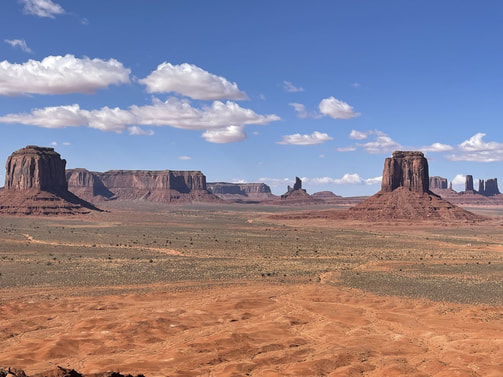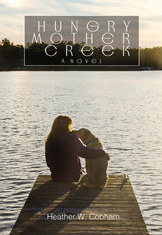 Finding the right words is a common thread running through my work as a counselor and author. In my counseling practice, I must find the right words to empathize, inspire, and sometimes challenge, while also helping my clients find the words to express their feelings. As an author, my word choice must be specific, and descriptive, so the reader can see and feel what my characters do. With all this wordsmithing, both verbal and written, you’d think I could easily find words for simple, personal conversations. Most of the time I can, but this was not the case when I returned from a month of camping and hiking in Colorado, Utah and New Mexico. Interested friends and family immediately asked “How was your trip?” I was unable to express how this experience impacted me. The one word that came to mind, awesome, didn’t feel adequate for the occasion. It’s overused and didn’t seem appropriate for the magnificence I’d observed on our trek through six national parks, one state park, three national forests, two national monuments and one Navaho tribal park. I looked up the definition of awe, which, according to Merriam-Webster, is “an emotion variously combining dread, veneration, or wonder, inspired by authority, or by the sacred or sublime.” Being in the presence of mountains, aspen trees, hot springs, canyons, arches, natural bridges, water pocket folds, hoo doos, and sand dunes filled me with veneration for their sublime beauty. I had been full of awe on my trip, so why didn’t awesome feel like the best word? Most likely because our culture, myself included, have misused this word since the 1980’s when everything was totally awesome. After coordinating a coffee date I’ve said, “Awesome. See you tomorrow morning,” or when my 5 pm client cancels I may say to myself, “Awesome. I can go home early.” These scenarios do not fill me with wonder. They are not sacred or sublime. They may be good, fantastic, excellent, but not awesome. I can’t change how others use this word, but I will be mindful of saving it for the transcendent, and not the mundane. My struggle to find the right word was a reminder that the misuse of a word, or the lack of adequate vocabulary, interferes with my ability to communicate my experience to others so they understand me. I confront this in my counseling practice as well. With little emphasis on building emotional vocabulary in our culture, most clients initially use vague and overused words to describe their symptoms like bad, sad, angry, tired, stressed, and depressed. Some even say they feel “some kind of way,” which refers to a negative emotional state. It’s hard to get anywhere without the right words. Though reflective listening and a list of feeling words, angry becomes resentful, tired becomes bored, sad becomes hopeless, depressed becomes unappreciated and “some kind of way,” becomes jealous. Once my clients’ emotions are labeled with accurate and specific words, we identify the most appropriate intervention to help them cope. This is a small, but imperative step in the counseling process that allows me, and the client, to better understand their emotional experience. Whether we use a counseling session, journaling, or a list of feeling words, labeling our feelings with the right word is a skill we all need. It increases self understanding and empowers us to better manage our emotions. So the next time you’re feeling some kind of way, challenge yourself to find a more specific feeling word, and the next time you go to a national park, have an awesome time!
4 Comments
|
Archives
November 2023
Categories |

 RSS Feed
RSS Feed